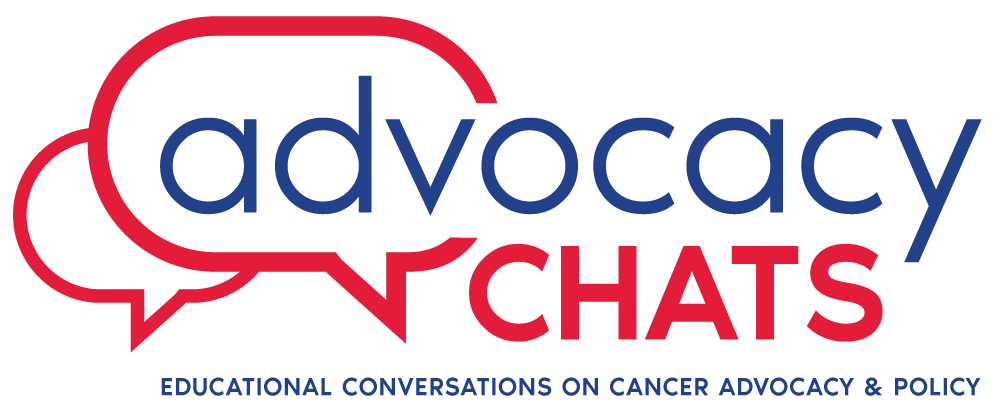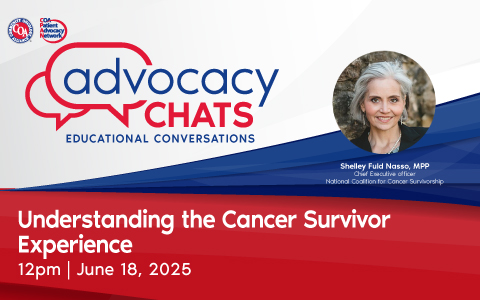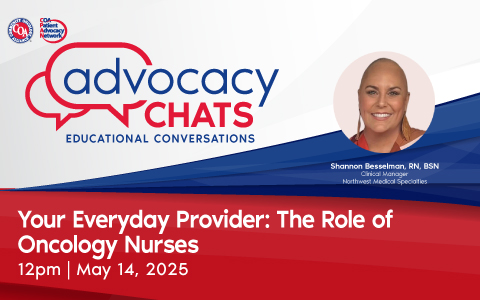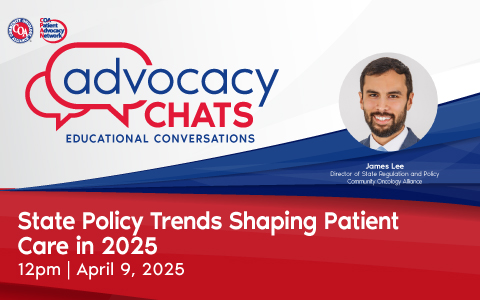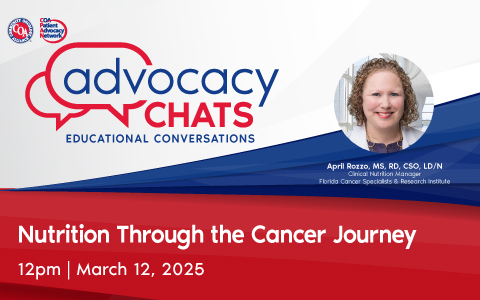The Impact of Health Equity on Cancer Care
As part of the Food and Drug Administration’s (FDA’s) designation of April as National Minority Health Care Month, the Community Oncology Alliance (COA) is working to raise awareness of the importance of improving the health of racial and ethnic minority populations and reducing health disparities. Health equity is one of COA’s most important initiatives. When patients are treated for cancer, their access to quality, affordable care is affected by economic status, geographic location, race, and ethnicity.
What does that look like for patients with cancer, and how does that change from patient to patient?
Rose Gerber, MS, COA’s director of patient advocacy and education, and Audrey Davis, LPC, PM LPC, director of health equity at Cancer Support Community, discussed how patients are affected by various socioeconomic needs, what can be done to mitigate the negative impact of these needs, and how organizations, like COA and the Cancer Support Community (CSC), are working to improve health equity for all patients.
Prior to starting the discussion, Rose reminded listeners that the presentations from the COA Annual Conference are now available on the COA Conference website to all those who registered for the Conference.
What is Health Equity?
The Centers for Disease Control and Prevention (CDC) defines health equity as “the state in which everyone has a fair and just opportunity to attain their highest level of health.” The CSC defines health equity as the attainment of the highest level of health regardless of race, ethnicity, religion, gender, sexual orientation, location, disability, and socioeconomic and educational levels.
Health equity is often confused with health equality. The two are not the same. An analogy to clarify the difference is to think of health care as a bicycle that gets us from Point A to Point B. Health equality is for everyone to get the same bicycle – regardless of their personal circumstances – to get from here to there. Health equity is when everyone gets the bicycle best suited to them so that all can “equitably” get from here to there.
About Cancer Support Community
As the largest professionally led non-profit network of cancer support worldwide, the Cancer Support Community’s mission is to ensure that all people, which includes not only patients, but also caregivers, friends, and family, impacted by cancer are empowered by knowledge, strengthened by action, and sustained by the community.
This discussion will include:
- How patients are affected by socioeconomic needs in order to understand the contextual history and current concerns
- What can be done to mitigate the negative impact of Health-Related Social Needs (HRSNs) and a model for addressing each one
- The Cancer Support Community’s efforts
- The next steps

How Patients Are Affected by Socioeconomic Needs
Maslow’s hierarchy of needs is a motivational theory in psychology comprising a model of human needs, often depicted as hierarchical levels. Needs lower down in the hierarchy must be satisfied before individuals can attend to the higher-level needs. From the bottom of the hierarchy and moving upwards, the needs are:
- Physiological Air, water, food, shelter, sleep, clothing, reproduction
- Safety Personal security, employment, resources, health, property
- Love & belonging Friendship, intimacy, family, sense of connection
- Esteem Respect, self-esteem, status, recognition, strength, freedom
- Self-actualization Desire to become the most one can be
When lower-level needs are unmet, it is difficult to focus on and achieve the higher-level needs; however, achieving many or most of the needs at every level remains important to have a safe, secure, and satisfying life. Cancer patients can often struggle with the most basic of needs, like food and shelter, which are jeopardized by the cost of their cancer care and which, in turn, also puts their health care in jeopardy.
In order to better determine where patients were on the spectrum of their needs, the Centers for Medicare and Medicaid Services (CMS) established the Accountable Health Communities Health-Related Social Needs Screening Tool. It enabled health care providers to determine such factors as interpersonal safety, utility help needs, transportation needs, food insecurity, and housing instability. These factors are also known as social determinants of health and health care. Also assessed with the screening tools are other factors including financial status, employment, family and community support, education, physical activity, substance use, mental health, and disability status.
All of these factors are interconnected and affect a patient’s status. Patients may be too sick to work as a result of cancer treatment and suddenly their insurance, housing, food, and mental health may all change drastically. The stability and security they once had can be gone, and their ability to cope with their illness, once good, can deteriorate significantly.
Patient Status Research
CSC has its own cancer experience registry which is a survey of patients with cancer and their caregivers. The research has shown that in the past year:
- Nearly half of all patients suffered financial toxicity due to the cost of their care
- One-third of those patients depleted their savings paying for their care
- About a quarter of the patients had to use retirement savings to pay for their care
Each of these findings has a profound effect on other patients’ needs. The Journal of Clinical Oncology noted that Blacks, Hispanics, and non-whites have poorer insurance than whites. Black patients are five times more likely to be denied insurance and twice as likely to experience financial toxicity. Research has also shown that black women and English-speaking Latinas with breast cancer are more likely to experience difficulties in paying for utilities and to experience housing insecurities.
Not only do social determinants of health for various groups cause them to experience more difficulties, but their access to solutions is also more difficult. Again, we see that skin color, gender, or other non-health related factors can affect health status and make it difficult to move on to the higher levels within the hierarchy of needs.

Alleviating the Negative Impact of Health-Related Social Needs
Research
It is important to do qualitative and quantitative research to determine both the problems and the needs of patients with cancer and their caregivers.
Communicate
There must be communication not only among cancer care providers but also with patients and caregivers who are a rich resource of information on problems and the needed solutions.
Collaborate
It is important for providers to work together to develop programs and to learn from them and to also learn from patients who have lived the experience of what does and does not work. This collaboration should also include other agencies and advocacy groups in order to tap into the fullest range of support and programs for patients.
Navigation
Both proactive and needs-based navigation are crucial to discovering and accessing the care and support that patients and caregivers need.
Advocacy
The work that needs to be done with the groups that need access to services is only part of the task. There is also the need to advocate with legislators and policymakers to evolve the system in order to better meet the needs of all patients no matter their circumstances.
Efforts to Reduce Health-Related Social Needs & Improve Health Equity
CSC provides patients access to licensed professionals in the form of a free, personalized, proactive navigation for cancer patients and their loved ones, by phone, chat, and video through its Cancer Support Helpline. The helpline is able to answer questions on a wide range of topics such as transportation services, support groups, counseling, and other support services. CSC is able to connect patients to both local and national organizations that provide help and support to patients with cancer.
The CSC website has patient and caregiver resources. Its free, award-winning, educational materials cover a broad range of cancer topics – such as caregiving, clinical trials, nutrition, how to talk to children, and more. The materials are divided by the rooms in a home, with nutrition information available in the Kitchen, general information available in the Library, and support services available in the Family Room. The different rooms in this virtual home cover all the aspects of information patients and caregivers need.
The CSC Health Equity Department addresses the psychosocial support needs and provides landscape analysis by CSC’s market research team. This provides the opportunity to:
- Learn from rural, Hispanic/Latino, and Black/African American members
- Develop network partner collaboration and partnership
- Develop best practices for providing support and addressing support barriers
The department also makes available a Cancer Disparities toolkit that includes accessible data to advance health equity. It provides data sorted by population and/or cancer type and factual information to aid policy advancement.
CSC’s Research and Training Institute (RTI) maintains the Cancer Experience Registry which includes a free and confidential online survey that captures the patient and caregiver experience and addresses multiple topics that are part of that experience.
CSC’s Action Center and Cancer Policy Institute (CPI) provides materials to educate on how to become an advocate and how to join the CSC grassroots network. This section also contains a review of the CSC legislative priorities. Additionally, CPI joins patient advocates with policy experts ensuring that the patient and caregiver voices are heard. CPI is research-based and research-supported.
Resources
To learn more about:
- Legislative efforts and focus areas
- Becoming a Cancer Support Community advocate
- Health disparities by cancer and population type
- Completing an entry in the cancer registry
Go to the Cancer Support Community website at www.cancersupportcommunity.org.
May Advocacy Chat
CPAN Advocacy Chats are regular virtual 30-minute educational conversations about cancer advocacy and policy with a guest speaker invited to discuss issues important to advocates. Do not miss the next Advocacy Chat:
Clinical Trials in the Community Oncology Setting:
Positive Impact on Patient Care
Wednesday, May 17 at 12 p.m. ET
The guest speaker will be:
Collen Lewis, MSN, ANP-BC, AOCNP
Vice President, Nursing & Research
Florida Cancer Specialists & Research Institute
CPAN Advocacy Chats are regular virtual 30-minute educational conversations about cancer advocacy and policy with a guest speaker invited to discuss issues important to patients and advocates. Summaries of previous Advocacy Chats are available on the CPAN website.
Past Advocacy Chats
